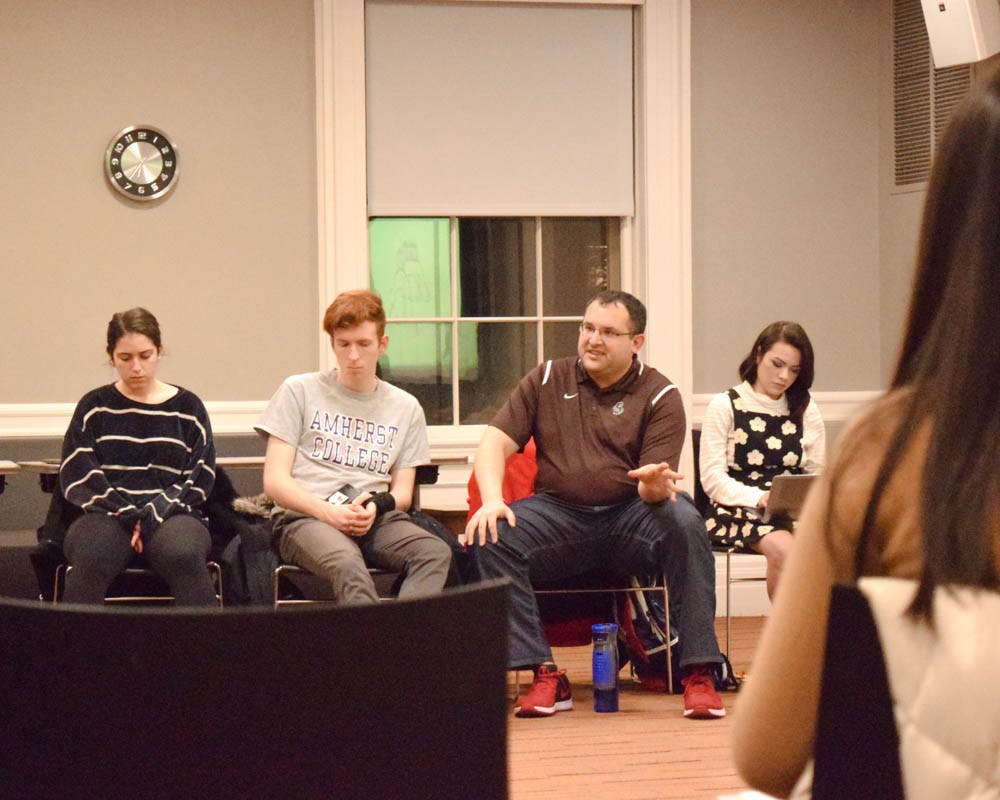At the Undergraduate Council of Students’ Wednesday general body meeting, Assistant Director for Community Dialogue and Campus Engagement Marc Peters spoke about the search for a program coordinator to develop and implement transformative justice models for conflict resolution.
Transformative justice seeks to find conflict resolutions beyond punitive measures such as disciplinary measures and sanctions.
The position, which Peters hopes will be filled by July, will sit within the University’s Institute for Transformative Practice and work collaboratively with other efforts in Peters’ office, according to a presentation by UCS President Shanzé Tahir ’19.
UCS proposed the program coordinator position to Provost Richard Locke P’18 in the fall semester in order to “expand (the University’s) capacity to address harm in our communities,” Tahir said. Locke approved funding for a two-year pilot run of the position. “The (transformative justice) model presents us with an opportunity to heal the trauma of past violence, prevent violence from occurring in the future and transform the toxic dynamics that beget harm,” Tahir added, referencing the need for resources that “support communities in dealing with harm” in ways “outside of the existing punitive system.”
The program coordinator would “hold several workshops and trainings with students, faculty and staff on transformative justice practice, work to develop initiatives to make (transformative justice) processes accessible and extensively work with UCS in its efforts in this area,” Tahir added.
Workshops with student groups such as sororities, fraternities and athletic teams would ask community members to “think through with intention what their community values are, what are the ways they engage with each other, how do they communicate, how do they make decisions … how do they build an inclusive environment?” Peters said.
The program coordinator position will not serve in a direct support role for students like CAPS or SHARE Advocates, but will work instead to develop and implement “processes that hopefully will help with the support and healing process” for harm that might affect group dynamics.
In the hiring process, the University will look for “someone who’s going to work with existing communities,” including student groups and student government, “to build capacity to infuse transformative justice and … (consider) how we resolve conflict and how we engage with one another,” Peters said. The program coordinator will serve primarily in an educational capacity, but also as a resource in instances of significant harm within groups.
“We want to find someone who has that experience and also has the ability to meaningfully connect with students,” Peters told The Herald after the meeting.
The candidate search committee, comprised of Peters, two Campus Life staff members and two students, one of whom is also a member of UCS, will begin direct outreach to community organizations, conflict resolution master’s programs and leaders in the social justice field, Peters said.
Peters explained the transformative justice framework as a “link between the personal and the collective. It’s not only the experiences of people who’ve been directly involved in whatever happened — it’s the experiences of the entire community around them.”
Connecting individuals and their communities in addressing harm is important because “harm doesn’t happen in isolation,” he added. “There’s societal, systemic issues that can create conditions, that can be internalized, that can contribute to perpetuating harm … And so (transformative justice) looks really holistically.”
During the presentation, Tahir said that former UCS Vice President Camila Pelsinger ’20 “helped considerably with these efforts.”
“The scope of what this could be is immense, and important and can be really powerful,” Peters said. “What it ends up looking like, and what success ends up looking like, depends certainly on student buy-in, but also what do students see as the needs in their community for where harm is occurring.”





